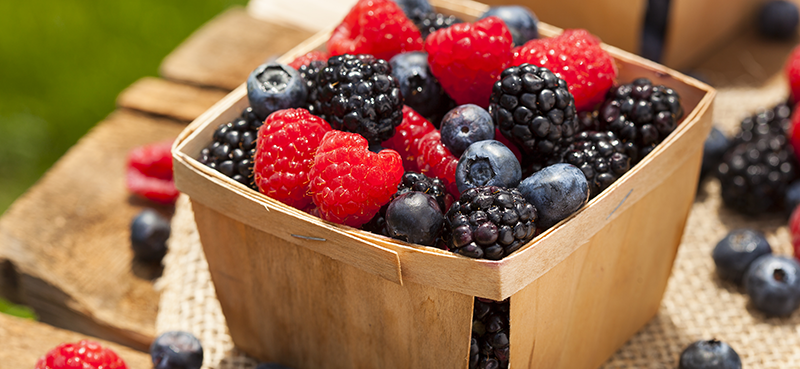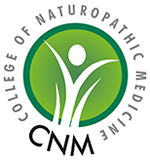Why organic is better for your gut

 By College of Naturopathic Medicine graduate Elle Fox
By College of Naturopathic Medicine graduate Elle Fox
With over 100 billion microorganisms for every gram of intestinal content, more serotonin (happiness hormone) receptors than your brain and 100 million neurons in your gut, it’s no wonder your moods and health are hugely influenced by what you eat: scientists are increasingly discovering proof that the quality of food (including where and how it’s grown, what it was sprayed with and how far it has travelled) influences the number and variety of the microorganisms in your digestive tract. A rich, diverse intestinal population helps you bounce back faster from illness and medical interventions (such as antibiotic use), and there is strong evidence it may boost metabolism, eliminate cravings and help you shed unwanted weight, not to mention improve your mood. Do I have your attention yet?
Recent research [1] suggests that organic food is better for the microbiome. Eating organic reduces exposure to pesticides, which disrupt the gut flora and cause health issues. Healthy soils, typically associated with organic cultivation, produce healthier food. Diversity in the Western diet has sharply declined over the past 70 years, so it is more important than ever to really pay attention to ‘eating a rainbow’.
A lot is said about probiotics and how fermented foods help to enrich your gut [2]. Probiotics are foods containing beneficial microbe colonies, and help to increase such colonies in your gastrointestinal tract.
But this is not the whole story… Enter prebiotics, types of fibre that provide food for beneficial microbe colonies, promoting their activity and growth.
Many foods, including fruit, vegetables and wholegrains, naturally contain prebiotic fibre. Organic produce, when minimally processed or fermented, is rich in these types of fibre (which become lost with processing). It offers your gut biome a really healthy workout, including the production of ‘short-chain fatty acids’, the main source of food for colon cells. Research [3] shows that these fatty acids are absorbed into the bloodstream and promote metabolic health, help insulin and cholesterol regulation, reduce inflammation and may lower the possibility of colorectal cancer.
And here comes the third ‘P’ in the story: polyphenols. Antioxidant-rich micronutrients in certain plant-based foods. They provide food for gut bacteria and can support a wide range of health issues, including weight management, diabetes, neurodegenerative and cardiovascular disease.
So what to do? Well, eat an organic rainbow:

- Eat more organic, prebiotic-rich foods: legumes (lentils, chickpeas, beans), oats, bananas, Jerusalem artichokes, asparagus, garlic, onions, leeks, nuts and seeds
- Eat more fermented (probiotic-rich) foods: live yoghurt, sauerkraut, kimchi, kefir, miso, natto, tempeh and sourdough bread
- Eat more polyphenol-rich foods: blueberries, blackberries, raspberries, strawberries, olive oil, red wine, dark chocolate, green tea
- Avoid processed foods: they contain very little, if any fibre, their nutrient profile is poor and replaced with artificial colourings, flavourings, preservatives and trans-fats (none of which are good for your gut)
- Remember: your body is made to feast on naturally colourful food; its flavour, appearance, delicious smell, crispness and freshness won’t be found in highly processed, commercially produced food
If you have a really compromised gut, food allergies or intolerances, inflammatory conditions such as IBS/Crohn’s or Coeliac, the introduction of both pre- and pro-biotics needs to be done slowly and carefully, ideally with the support of an experienced nutritional therapist or naturopathic practitioner.
Try our Juicy Rainbow Salad recipe …
References
[1] Recent research suggests that organic food is better for the microbiome.
An Apple a Day: Which Bacteria Do We Eat With Organic and Conventional Apples?
Monsanto must pay couple $2bn in largest verdict yet over cancer claims
[2] A lot is said about ‘probiotics’ and how fermented foods help enrich your gut.
Health-Promoting Fermented Foods
Fermentation-enabled wellness foods: A fresh perspective
Prebiotics and Probiotics in Altering Microbiota: Implications in Colorectal Cancer
Fermented Milk in Protection Against Inflammatory Mechanisms in Obesity
Stress matters: Randomized controlled trial on the effect of probiotics on neurocognition
Reactive mechanism and the applications of bioactive prebiotics for human health: Review
High levels of branched chain fatty acids in n?tto and other Asian fermented foods
Role of Gut Microbiota-Generated Short-Chain Fatty Acids in Metabolic and Cardiovascular Health
Prebiotics and Probiotics in Digestive Health
Prebiotics and synbiotics: Recent concepts in nutrition
Dietary fiber from Indian edible seaweeds and its in-vitro prebiotic effect on the gut microbiota
Role of prebiotics in regulation of microbiota and prevention of obesity
Can prebiotics assist in the management of cognition and weight gain in schizophrenia?
[3] Research shows that these fatty acids are absorbed into the bloodstream …
Occurrence, absorption and metabolism of short chain fatty acids in the digestive tract of mammals.
Short-Chain Fatty Acid Production and Functional Aspects on Host Metabolism
CARBOHYDRATES: Digestion, Absorption, and Metabolism
Regulation of Immune Cell Function by Short Chain Fatty Acids and Their Impact on Arthritis
Naturopathy Lifestyle Interventions in Boosting Immune Responses in HIV-Positive Population
